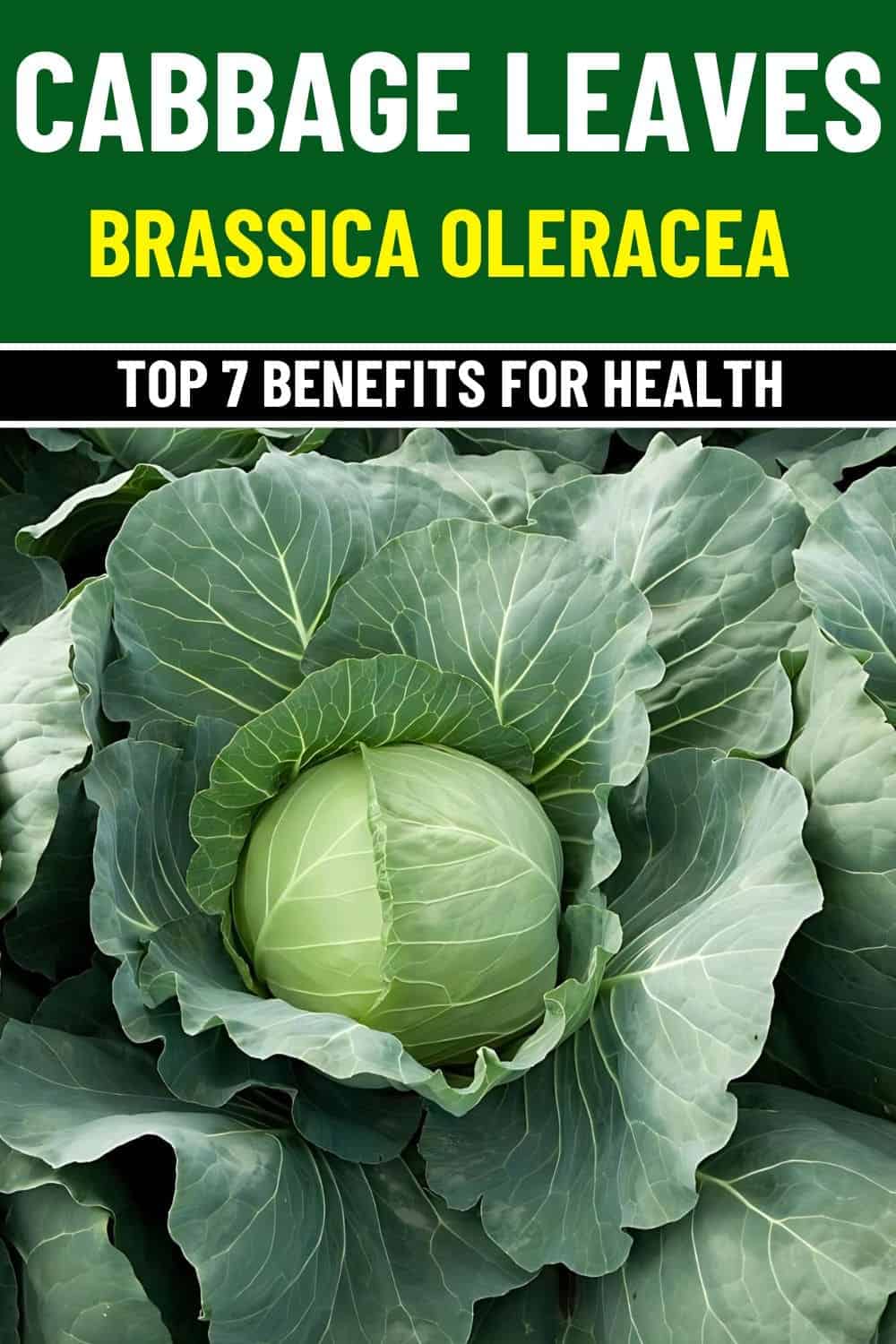Cabbage is often celebrated for its culinary versatility, but did you know that cabbage leaves have been used for centuries as a natural remedy?
Rich in essential vitamins, minerals, and antioxidants, cabbage leaves can support your health in various ways, from reducing inflammation to promoting wound healing.
Whether you’re eating them or using them as a topical wrap, cabbage leaves offer surprising benefits backed by both tradition and science.
#1. Reduces Inflammation and Relieves Pain
Cabbage leaves are renowned for their natural anti-inflammatory properties, which make them useful for easing swelling and pain.
They contain compounds such as anthocyanins (in purple cabbage) and glucosinolates that help reduce inflammation in the body.
These compounds work by inhibiting inflammatory pathways, making cabbage leaves a natural choice for those suffering from joint pain, arthritis, or general inflammation.

#2. Promotes Wound Healing and Skin Health
Cabbage leaves are rich in vitamin C and antioxidants, both of which are essential for skin health and wound healing.
Studies indicate that vitamin C plays a critical role in collagen synthesis, promoting skin repair and maintaining elasticity.
The antioxidants in cabbage leaves also protect the skin from free radicals, which can damage cells and accelerate aging.

#3. Supports Breastfeeding and Reduces Engorgement
Breastfeeding mothers have long used cabbage leaves as a natural remedy to relieve breast engorgement.
The cool temperature of the leaves, combined with their anti-inflammatory effects, can help ease the discomfort and swelling associated with engorged breasts.

#4. Aids in Detoxification
Cabbage leaves are beneficial for the liver and detoxification process due to their high content of sulfur-containing compounds, such as glucosinolates.
Research published in Cancer Epidemiology, Biomarkers & Prevention suggests that glucosinolates activate detoxification enzymes in the liver, promoting the body’s ability to break down and remove harmful substances.

#5. Boosts Immune System
Vitamin C in cabbage leaves boosts the activity of white blood cells, which are essential for defending the body against infections.
Regular consumption of cabbage leaves, whether raw or cooked, provides a steady source of this important nutrient, helping to keep your immune system strong.

#6. Supports Heart Health
Cabbage leaves contain potassium, an essential mineral that helps regulate blood pressure, as well as antioxidants that combat oxidative stress, which is linked to heart disease.
Additionally, the fiber in cabbage can help reduce cholesterol levels, contributing to overall cardiovascular health.

#7. Promotes Digestive Health
Cabbage leaves are high in dietary fiber, which is crucial for digestive health.
Fiber adds bulk to stool, making it easier to pass and helping prevent constipation. It also serves as food for beneficial gut bacteria, promoting a healthy gut microbiome.

How to Include Cabbage Leaves in Your Diet
- Cabbage Wraps: You fill them with your favorite ingredients, like hummus, avocado, or lean meats, for a nutritious and satisfying meal.
- Cabbage Leaf Tea: You can boil cabbage leaves in water for about 10 minutes to create a mild tea for detoxifying effect.
- Salads and Slaws: Shred raw cabbage leaves into salads or coleslaws. This keeps their vitamin C content intact, providing a crunchy, immune-boosting addition to your meals.
- Smoothies: For a nutrient boost, add a few raw cabbage leaves to your green smoothies.
Precautions When Using Cabbage Leaves
Cabbage, like other cruciferous vegetables, contains goitrogens, which can interfere with thyroid function if consumed in large amounts.
If you have thyroid issues, consult a healthcare provider before adding large quantities of cabbage to your diet.
Also, cabbage can cause gas and bloating, especially when eaten raw. If you have a sensitive stomach, start with small amounts or try cooking the cabbage leaves to make them easier to digest.
Disclaimer
This article is for informational purposes only and is not intended as a substitute for professional medical advice, diagnosis, or treatment.
Always consult with a qualified healthcare provider before making any changes to your health routine, especially if you have underlying health conditions, are pregnant, or are taking medications.







